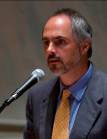 BY BRIAN CONCANNON JR. and IRA KURZBAN
BY BRIAN CONCANNON JR. and IRA KURZBAN
ira@kkwtlaw.com
Late last month, Haiti’s government took the undemocratic and dangerous step of excluding 15 political parties, including Haiti’s most popular party, Fanmi Lavalas, from parliamentary elections scheduled for February and March 2010. The decision threatens not only Haiti’s democracy and stability, but billions in foreign investments financed by taxpayers in the United States and elsewhere.
The Obama administration, along with the United Nations and the Organization of American States, needs to step up and head off this disaster by refusing to finance the electoral charade.
The February/March elections are important because one-third of Haiti’s Senate and the entire House of Deputies is at stake. Fanmi Lavalas’ participation is important because the party is by far Haiti’s most popular. It has won every election it has contested, including 90 percent of the seats in the 2000 parliamentary elections.
Haiti’s Provisional Electoral Council (PEC) claimed that a mandate sent by the party’s exiled leader, former President Jean-Bertrand Aristide, from South Africa, is not authentic. In fact, Fanmi Lavalas presented an original mandate, authenticated by a Haitian notary that complies with Haitian law. Aristide sent a fax of the mandate directly to the PEC, and confirmed its authenticity in a radio interview.
The PEC not only lacks a good reason for removing Fanmi Lavalas from voters’ ballots, it also lacks the constitutional legitimacy to do so. The Council is a Provisional Council hand-picked by Haiti’s President, René Préval, not the independent Permanent Council required by Haiti’s 1987 Constitution.
Credibility in doubt
The PEC tried the same thing earlier this year, and got away with it. The Council disqualified Fanmi Lavalas and other parties from elections held in April and June for 11 Senate seats. When the disqualifications were first announced, the United States, the U.N. and the OAS denounced them as undemocratic.
The U.S. Embassy warned that the exclusion would “inevitably” raise questions about the election’s credibility.
But the PEC called the international community’s bluff and kept the excluded parties out. The international community blinked by not only accepting the flawed elections, but paying for them, too: International donors supplied $12.5 million, 72 percent of the election’s cost.
Election boycotted
Haitian voters, knowing a fraud when they see one, boycotted. The PEC’s official participation rate of 11 percent for the April elections was low enough, but most observers put the real figure at 3 percent to 5 percent.
By dropping their principled objections to the April election’s flaws, the international community gave the PEC a green light to keep excluding the government’s political rivals. This light is still green: the United States, OAS and U.N. let last week’s exclusion pass without public criticism or any threat to withhold the $18 million promised for the February voting.
All three have invested billions of dollars in Haiti over the last few years. The U.N. peacekeeping mission in Haiti costs $600 million a year, and the U.S. Agency for International Development contributed $287 million this year to Haiti. U.N. Special Envoy to Haiti Bill Clinton is working hard to convince private investors that Haiti is a good place to do business.
All these investments may be wiped out by the PEC’s exclusion plan. Experience in Haiti and elsewhere demonstrates that preventing citizens from challenging government policies through the ballot box inevitably will lead to challenges outside the ballot box.
If the Council does not change course, President Préval’s allies may control Parliament, but Haiti’s streets will be filled with angry protestors confronting U.N. troops and blaming the United States for supporting yet another undemocratic regime. Social unrest will stall development projects and scare investors.
Americans and Haitians deserve a better return on their money spent to stabilize and develop Haiti. The Obama administration can guarantee a better return by immediately cutting off all funding for the electoral charade and insisting that it will neither finance, nor recognize, elections that are not fair and inclusive.
Brian Concannon Jr. served as an OAS election observer and U.N. human rights officer in Haiti and currently directs the Institute for Justice & Democracy in Haiti. Ira Kurzban was U.S. legal counsel for the Haitian governments under presidents Préval and Aristide from 1991-2004.